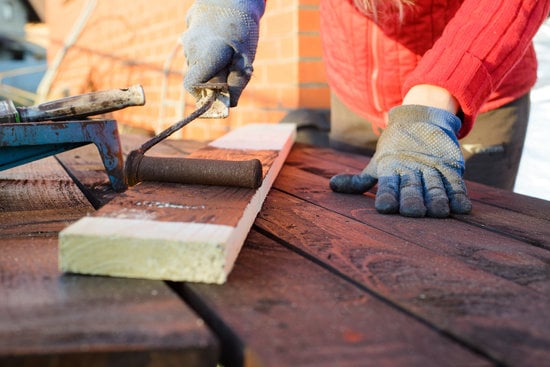Have you ever wondered how much money the cast of “Home Improvement” makes for reruns? The beloved 90s sitcom continues to be a fan favorite, even decades after it first aired. In this article, we will explore the economics of television syndication and the concept of residual payments for actors. We will also delve into the behind-the-scenes process of negotiating rerun residuals and how it has contributed to the financial success of the Home Improvement cast.
“Home Improvement” was a cultural phenomenon during its original run from 1991 to 1999, starring Tim Allen as Tim “The Toolman” Taylor. The show’s timeless humor and endearing family dynamics have ensured its enduring popularity, leading to lucrative syndication deals that continue to generate revenue for networks and production companies. But just how much money do the cast members make from these reruns?
As we uncover the financial impact of “Home Improvement” reruns on the cast, we will also highlight the main cast members and their respective roles in the show. From negotiating fair rerun residuals to enjoying ongoing syndication perks, we aim to provide insight into how this iconic sitcom has influenced the financial well-being and career choices of its talented stars.
The Economics of Television Syndication
Benefits of Reruns for Networks
Reruns are a low-cost way for networks to fill up their programming schedule. Instead of producing new content, networks can simply air episodes of established shows like Home Improvement, saving on production costs while still attracting viewers. Additionally, reruns often serve as lead-ins to other shows in the lineup, helping boost overall viewership and advertising revenue.
Revenue Generation From Syndication
When it comes to syndication, production companies can sell the rights to air reruns of a show to various networks and local stations. These deals often involve licensing fees paid by the networks, resulting in a stream of revenue for the production company. The more popular the show, the higher the licensing fees can be, making successful sitcoms like Home Improvement incredibly lucrative in syndication.
Understanding how television syndication works sheds light on the financial implications for the cast members of Home Improvement. As one of the most beloved sitcoms from its era, it’s clear that reruns have played a significant role in generating revenue not only for the networks and production companies but also for the actors who brought these iconic characters to life.
Understanding Residual Payments
Residual payments are a crucial aspect of an actor’s income, especially in the world of television syndication. When a show like Home Improvement is rerun on various networks, the cast members are entitled to receive payments for each airing of the episodes. These residual payments are calculated based on a variety of factors, including the type of network airing the reruns, the time slot, and the number of episodes being aired.
The concept of residual payments ensures that actors continue to benefit from their past work even after the initial production has ended. For shows like Home Improvement, which have achieved enduring popularity and continued syndication, these residual payments can become a significant source of income for the cast members. Considering that reruns can continue for decades after a show’s original run, these payments offer actors long-term financial stability.
Calculating residual payments is often based on complex formulas and agreements outlined in contracts between actors and production companies. Factors such as viewership numbers, market size, and international syndication also come into play when determining how much each actor will receive for reruns. Negotiating fair and equitable residual payment terms has been a major focus for many actors over the years, ensuring that they receive just compensation for their ongoing work being broadcast to audiences worldwide.
Home Improvement Cast
Home Improvement was a beloved sitcom that aired from 1991 to 1999, gaining a dedicated fan base over the years. The main cast members played pivotal roles in the show’s success, contributing to its enduring popularity and widespread syndication. The show centered around the Taylor family and their lives in suburban Detroit, with Tim Allen leading the cast as Tim “The Toolman” Taylor, a devoted husband and father who also hosted a home improvement TV show.
Patricia Richardson portrayed Jill Taylor, Tim’s loving and understanding wife who often had to rein in his antics. Their three sons were played by Zachery Ty Bryan (Brad), Jonathan Taylor Thomas (Randy), and Taran Noah Smith (Mark). In addition, Richard Karn had a recurring role as Al Borland, Tim’s friend and co-host on “Tool Time,” the fictional TV show within Home Improvement.
The success of Home Improvement has continued through syndication reruns, providing ongoing royalties for the cast members. This is due to the economics of television syndication – as networks continue to air reruns of popular shows like Home Improvement, they generate revenue from advertising and licensing deals.
These financial benefits extend to production companies and ultimately make their way to the actors through residual payments. For shows like Home Improvement that have maintained their popularity over the years, these rerun residuals can add up significantly for the main cast members.
In negotiating rerun residuals, actors have been known to advocate for fair compensation based on factors like episode airings and market reach. In the case of Home Improvement, this ongoing process has likely contributed to the financial success of its main cast members. With the show’s continued presence in syndication, it has provided a consistent source of income that has bolstered their wealth and financial stability throughout their careers beyond the sitcom.
Negotiating Rerun Residuals
When it comes to the world of television syndication, the negotiation process for cast members to receive their fair share of rerun profits can be quite intricate. For the beloved cast of Home Improvement, the process of negotiating rerun residuals has played a significant role in securing their financial well-being long after the show ended.
This behind-the-scenes aspect sheds light on the business side of the entertainment industry and how actors work to ensure they are compensated fairly for their work.
Rerun Residuals: What Are They?
Rerun residuals refer to the additional payments that actors receive when their work is rebroadcasted. This form of compensation is crucial in ensuring that actors continue to benefit from the success of TV shows or films even after their original run. For the cast of Home Improvement, negotiating these residuals has been pivotal in sustaining their income as the show continues to be aired in syndication.
The Complexity of Negotiations
Negotiating rerun residuals involves a complex process that takes into account a variety of factors such as viewership numbers, airtime frequency, and contractual agreements. Cast members must advocate for themselves to secure an equitable portion of the revenue generated from reruns.
This can involve legal representation and strategic negotiations with production companies and networks to ensure that they receive a fair share based on the ongoing success and popularity of the show. The negotiation process varies for each actor based on their individual contracts and contributions to the series.
Success and Wealth
Home Improvement was a highly successful and popular sitcom during its original run, and its continued success in syndication has significantly contributed to the financial success of the cast. The show’s ongoing popularity in reruns has resulted in substantial residual payments for the main cast members, providing them with a steady source of income long after the series ended.
This section delves into how reruns have played a crucial role in elevating the financial status of the Home Improvement cast.
- Tim Allen: As the lead actor in the show, Tim Allen has reaped significant financial benefits from Home Improvement’s reruns. His portrayal of Tim “The Toolman” Taylor not only made him a household name but also continues to bring in substantial monetary rewards through residual payments.
- Patricia Richardson: Known for her role as Jill Taylor, Patricia Richardson has also benefited from the show’s enduring popularity. Residual payments from Home Improvement reruns have added to her financial success and provided a sense of stability in her career.
- Earl Hindman: Despite his character Wilson being mostly obscured by a fence, Earl Hindman’s portrayal left a lasting impact. Through syndication, his work on Home Improvement continues to contribute to his financial well-being posthumously.
Overall, the ongoing success of Home Improvement in syndication has not only solidified the show’s place in television history but has also been instrumental in providing financial security and wealth for its main cast members. The residual payments from reruns have allowed them to continue benefiting from their hard work on the show and have contributed to their overall success and prosperity.
Perks of Ongoing Popularity
After “Home Improvement” ended in 1999, the cast members continued to receive a financial windfall from the show’s ongoing popularity in reruns. Syndication deals with various networks and streaming platforms have kept the sitcom relevant, leading to continuous residual payments for the actors. These residual payments are a crucial source of income for the cast, as they continue to earn money long after the original episodes were filmed.
One of the main benefits of ongoing syndication for the cast is the sustainability of their income. Unlike traditional jobs where individuals receive paychecks for hours worked, residual payments allow actors to have a consistent stream of income even when they are not actively involved in new projects. This financial stability can provide a sense of security and freedom for cast members as they navigate their careers in Hollywood.
Moreover, ongoing popularity through reruns can also lead to renewed interest in the cast members’ previous work and open doors to new opportunities. The exposure from “Home Improvement” reruns can attract new fans and industry professionals who may offer the cast members acting roles, endorsements, or other lucrative prospects. As a result, ongoing syndication contributes not only to the financial success but also to the overall career development of the “Home Improvement” cast.
| Benefits | Impacts |
|---|---|
| Sustainability of income | Financial stability and freedom for actors |
| Renewed interest in previous work | New opportunities for acting roles, endorsements, and more |
Impact on Other Projects
In conclusion, the success and popularity of Home Improvement reruns have significantly impacted the financial stability and career choices of the cast members. As discussed earlier, the ongoing syndication of the show has resulted in substantial residual payments for the actors, contributing to their wealth and financial success. This has provided them with the freedom and flexibility to pursue projects that align with their artistic interests, rather than being solely motivated by financial considerations.
The continued revenue from Home Improvement reruns has given the cast members a sense of security and stability, allowing them to take on roles in projects that may not necessarily be lucrative but are creatively fulfilling. Many of the cast members have been able to diversify their portfolios, venturing into producing, directing, and even philanthropy endeavors thanks to the financial cushion provided by the show’s syndication profits.
Furthermore, the enduring popularity of Home Improvement reruns has not only benefited the individual actors but has also had a positive impact on their subsequent projects as a whole. With a solid financial foundation from residual payments, cast members have been able to take risks on more unconventional or challenging roles, leading to a rich variety of work that continues to engage and captivate audiences.
Thus, it is evident that the income generated from syndication has not only contributed to the wealth of the Home Improvement cast but has also played a crucial role in shaping their artistic pursuits and opportunities in Hollywood.
Frequently Asked Questions
Does the Cast of Reba Get Paid for Reruns?
Yes, the cast of Reba does get paid for reruns. When a television show is syndicated or licensed for streaming services, the actors typically receive residual payments based on the number of times the show is aired or streamed.
Do Actors Still Get Paid for Old Shows?
Yes, actors still get paid for old shows through residual payments. These payments are made whenever the show is re-aired, licensed to a streaming platform, or distributed in another format that generates revenue. The amount of residual payment depends on various factors including the original contract terms and industry standards.
How Long Do Actors Get Royalties?
Actors can receive royalties for a varying amount of time, depending on the medium and distribution of their work. For television shows, actors can continue to receive residuals as long as the show continues to generate revenue from reruns or streaming.
For other forms of media like films or music, royalty agreements can vary widely and may last for decades after the initial release.

I’m thrilled to have you here as a part of the Remodeling Top community. This is where my journey as an architect and remodeling enthusiast intersects with your passion for transforming houses into dream homes.





